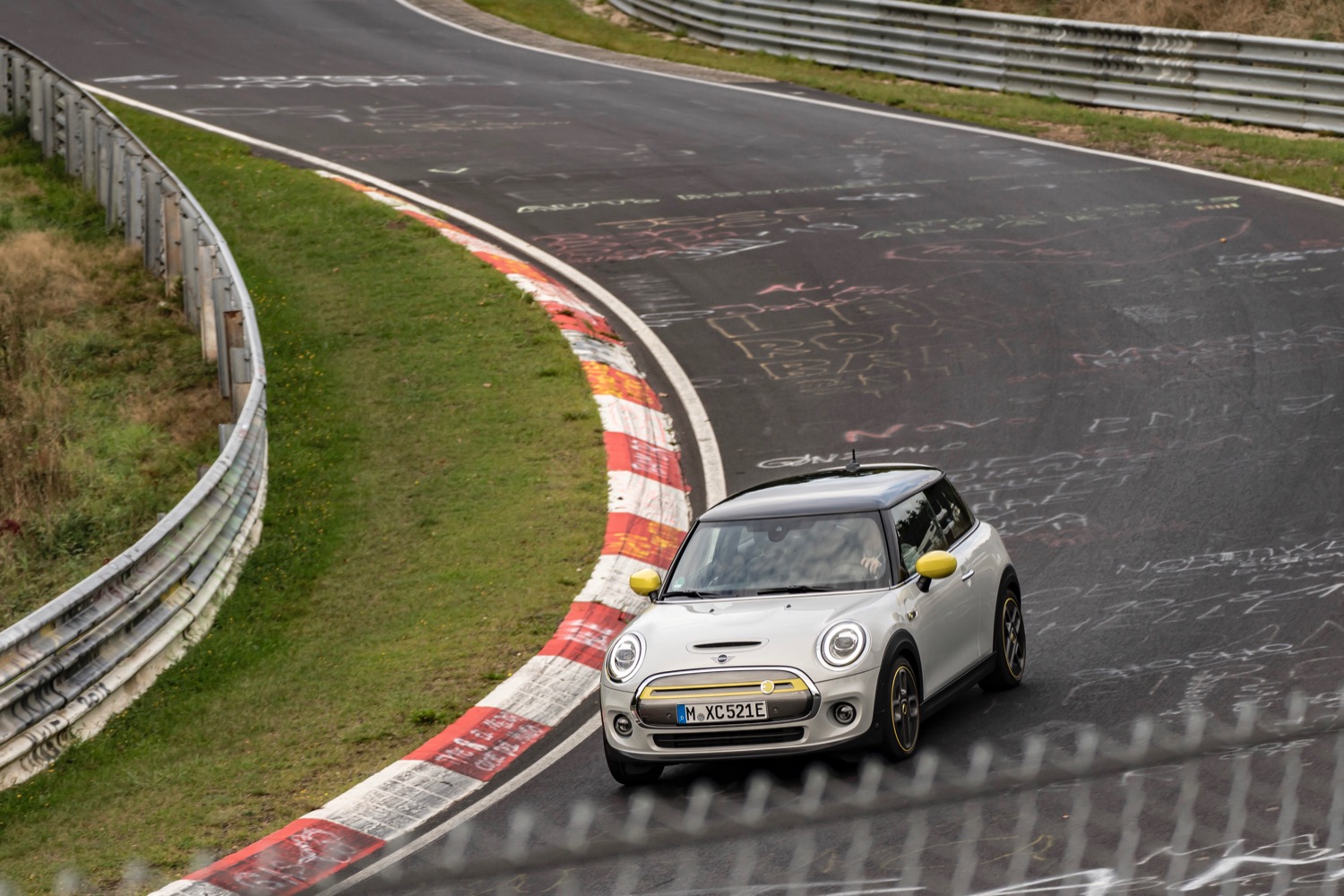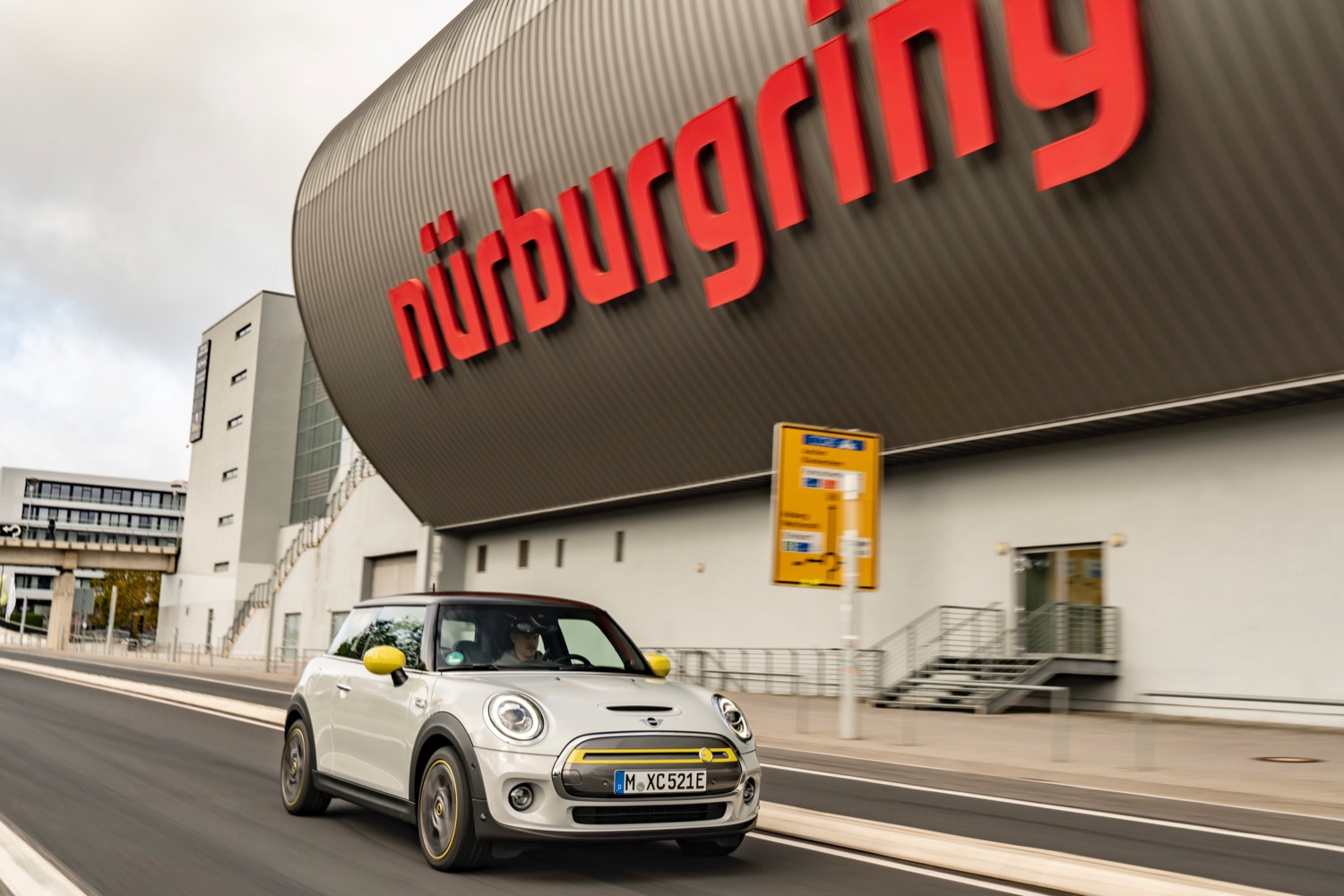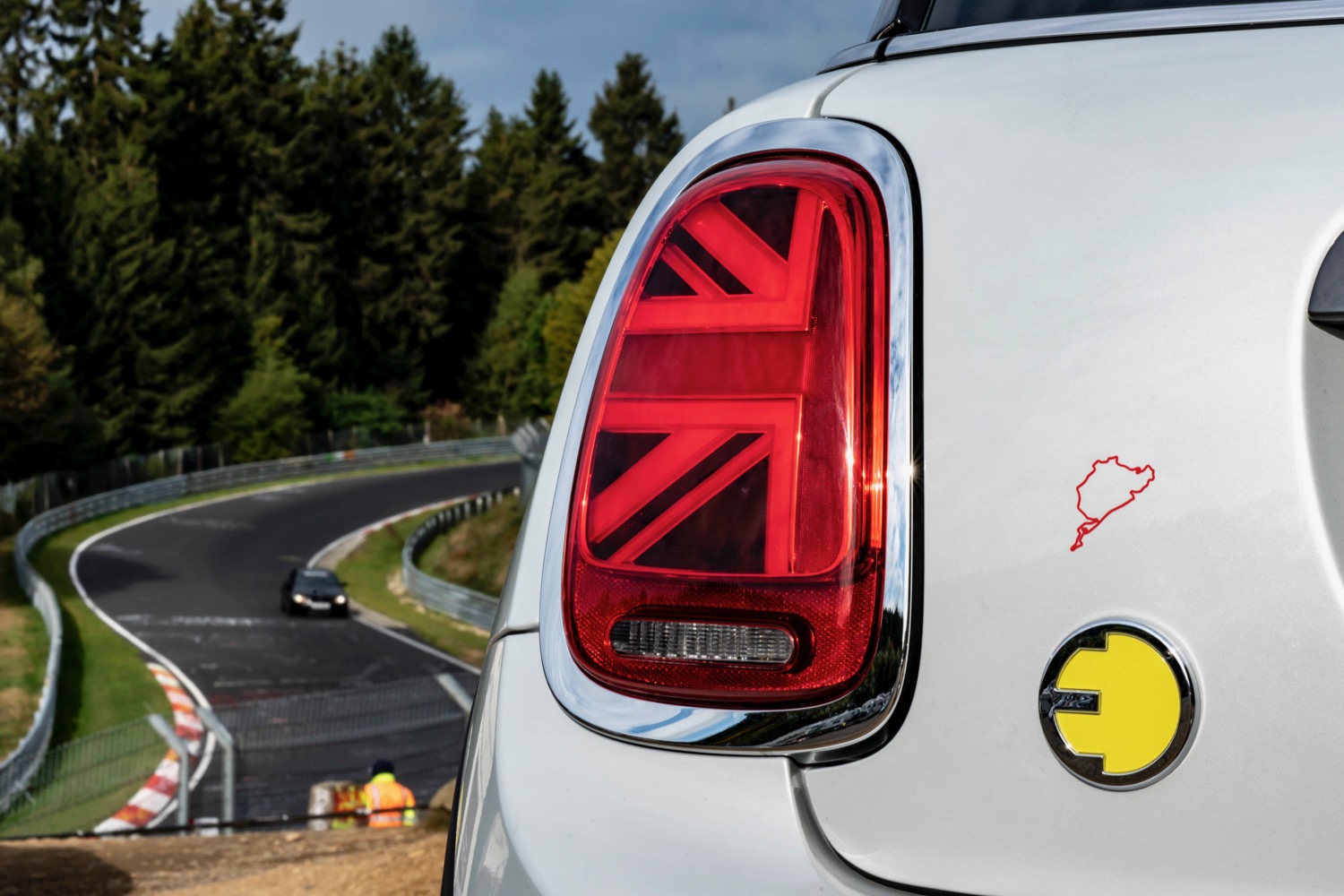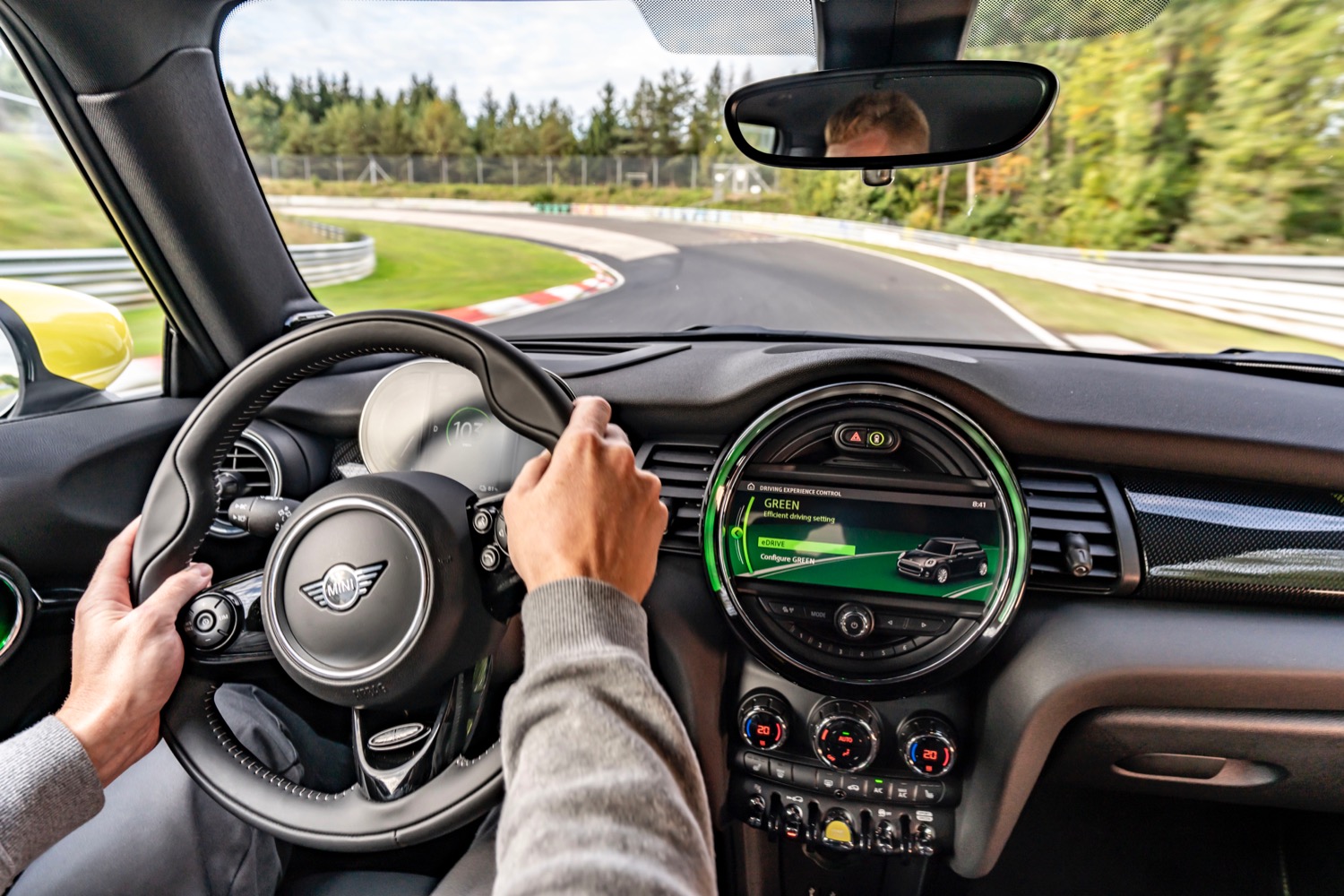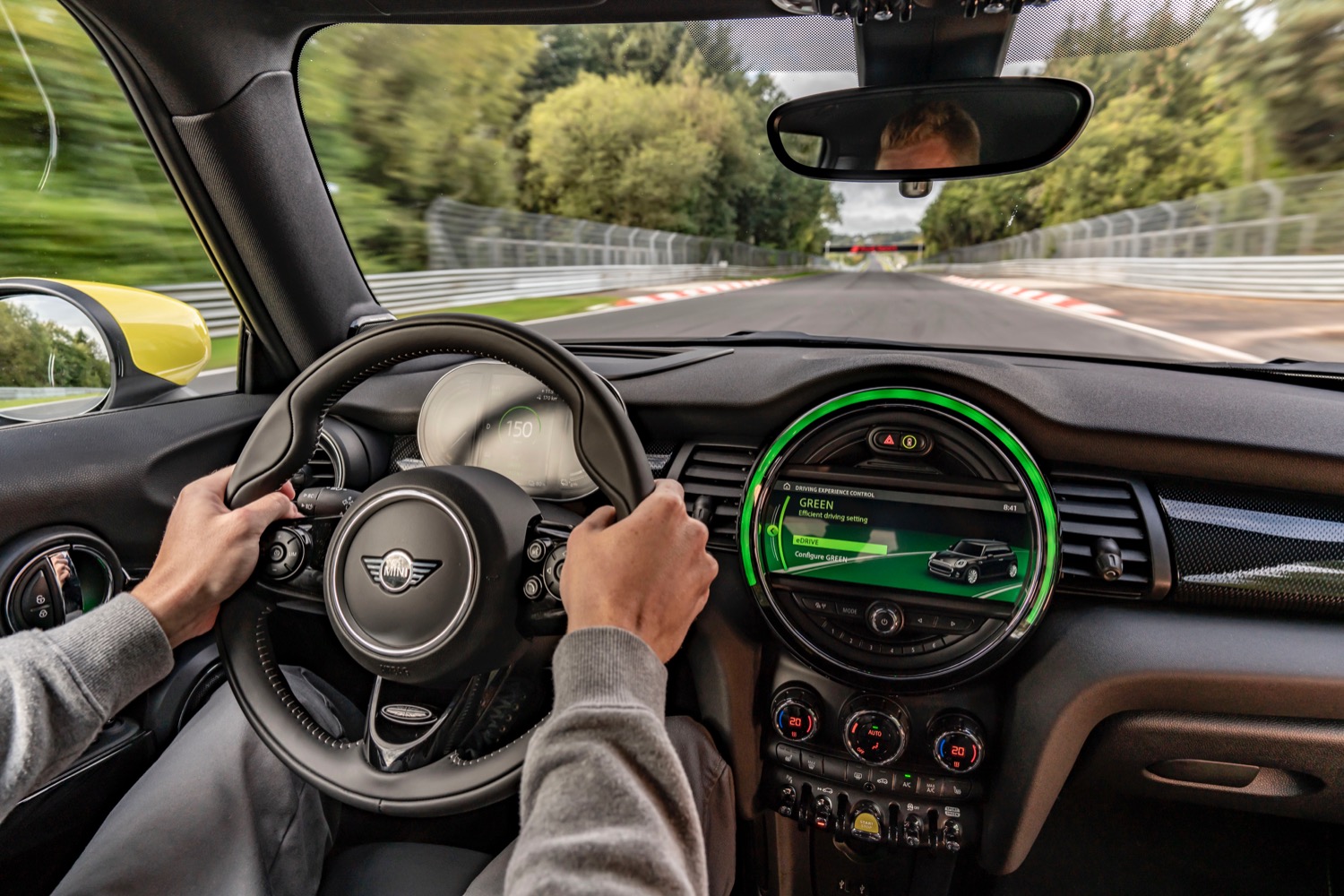The Nürburgring is where automakers go to set lap records, but Mini had a different point to prove when it showed up at the German racetrack with its first all-electric model. The 2020 Mini Cooper SE did not set a blazing fast lap time on the 12.9-mile ‘Ring, but the lap was impressive for another reason. The driver didn’t use the brakes.
Like most electric cars, the Mini Cooper SE has both conventional friction brakes and regenerative braking, which uses the resistance of the electric motor to slow the car down. This is primarily used to recapture energy that is normally lost as dissipated heat, helping to recharge the battery pack. But it also allows the driver to control speed solely with the throttle, what electric car drivers fondly refer to as “one pedal driving.”
The Mini Cooper SE allows the driver to manually select the level of regeneration. That’s something we’ve previously seen in other electric cars, like the Chevrolet Bolt EV, but it’s a first in an electric model from the BMW Group. Two levels — 0.11g and 0.19g — are available, activated using a toggle switch on the dashboard. The Nürburgring is nicknamed “Green Hell,” so fittingly Mini’s test driver also used Green mode for the lap. This mode turns off the climate control and seat heaters to save energy, similar to the Eco Pro mode you get in a BMW i3.
Note that the driver didn’t hit the track at full speed. The lap was done at a slower pace in order to rely on regenerative braking without going off course at any of the ‘Ring’s 73 corners. The Mini Cooper SE was never going to set a lap record, anyway. With just 181 horsepower and 199 pound-feet of torque, the Mini doesn’t hold a candle to the Porsche Taycan or Tesla Model S — both of which have visited the ‘Ring recently. Mini’s claimed zero to 62 mph of 7.3 seconds and top speed of 93.2 mph should be more than adequate in the real world, though.
Driving on normal roads rather than racetracks, Mini expects the Cooper SE to achieve 146 miles to 167 miles of range, as measured on the European testing cycle. While a United States figure will likely be lower, Mini has already demonstrated that the Cooper SE will have plenty of real world range. The car was driven 248 miles from Munich to Frankfurt, Germany, with just one stop to charge. The electric Mini is expected to go on sale in the U.S. next year.

